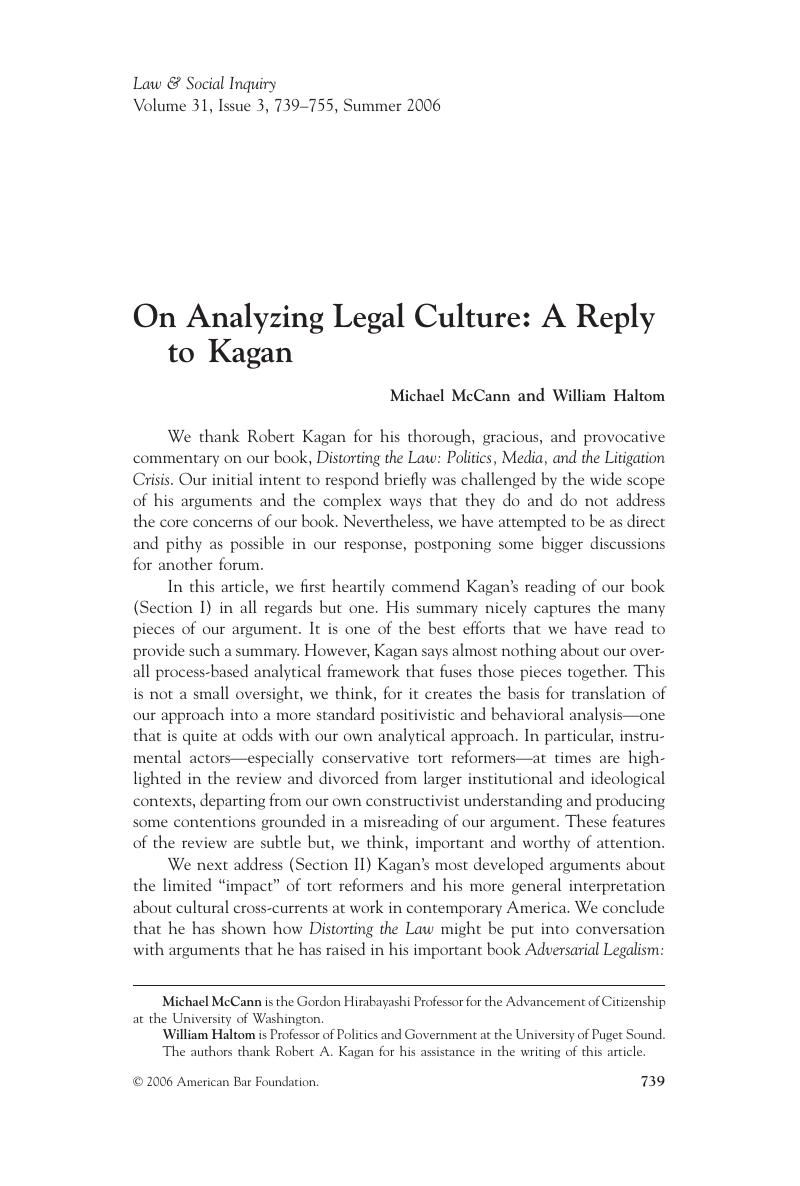Crossref Citations
This article has been cited by the following publications. This list is generated based on data provided by Crossref.
Ley, Aaron J.
2014.
The Costs and Benefits of American Policy-Making Venues.
Law & Society Review,
Vol. 48,
Issue. 1,
p.
91.



